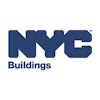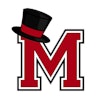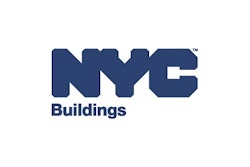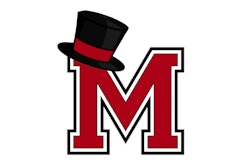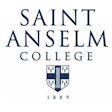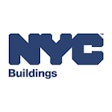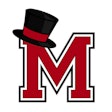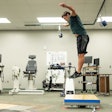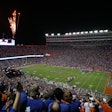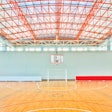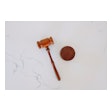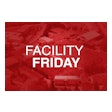Copyright 2018 Virginian-Pilot Companies LLC
All Rights Reserved
The Virginian — Pilot (Norfolk, VA.)
Virginia is poised to finish among the top 20 in the Directors' Cup all-sports standings for the 12th consecutive year, a testament to the school's Olympic programs such as baseball, soccer, tennis, lacrosse, rowing and golf.
Among the Cavaliers' 14 ACC colleagues, only North Carolina can also stake that claim.
Making U.Va.'s sustained excellence all the more extraordinary: The Cavaliers are doing it with obsolete and, in some cases, crumbling facilities.
"The coaches for our Olympic sports have been able to find a way to compete and be successful," said Carla Williams, U.Va.'s athletic director since December. "But we are at that point where our competitors are starting to pass us by. So we have to do something. We have to."
Williams recently shared a master plan for infrastructure upgrades to the U.Va. Board of Visitors' building and grounds committee.
Ambitious and necessary don't begin to describe it.
Williams outlined the concept — demolition of University Hall, Onesty Hall and the Cage, followed by construction of a football operations center, Olympic sports complex, additional practice fields and softball stadium — to reporters in May. University architect Alice Raucher unveiled potential renderings to the Board of Visitors.
The Olympic sports facility would include locker and meeting rooms, offices, a strength-and-conditioning center and areas for student development pursuits such as academic support.
In neither her presentation to the board nor a subsequent interview did Williams estimate the cost or timeline. Suffice to say, it will take a long time and cost a lot of money — likely north of $100 million.
Blueprints first must be finalized and approved. Funds must be raised. Only then can construction begin.
The one known cost is $12 million to $14 million for removing asbestos from U-Hall, demolishing the structure by 2020 and relocating Olympic sports coaches and their 400-plus athletes into temporary modular quarters (read: trailers).
U-Hall served as the basketball arena until John Paul Jones Arena opened across the street in 2006. U-Hall was antiquated then. As home to Virginia's Olympic programs, it's embarrassing to the athletic department, depressing to visitors and jarring to prospects.
The spectator bowl is padlocked to prevent asbestos exposure. The upper concourse of offices is stark and stuffy. The lower ring of locker rooms and storage areas is grimy and dark. Paint is peeling on both levels.
U-Hall connects to Onesty Hall and the Cage, the latter a cluttered and tattered indoor practice barn. The conditions are no better than at U-Hall.
"It hasn't always been that bad," women's lacrosse coach Julie Myers said. "I think now that we know there's a new future to look forward to, I think we can look at it and say, 'Wow, we really need more.' But I think people at Virginia have always done a good job making what we have seem like it's just enough, like it's perfect. So we didn't waste much time complaining about U-Hall. …
"I love U-Hall, but the idea of a new student center and new fields and a new look for all of our programs is pretty exciting. It's long overdue."
Myers has unsurpassed perspective. She attended basketball games at U-Hall as a student, reveling in conquests of Duke and North Carolina. She ran U-Hall's steps as an athlete, conditioning with her lacrosse teammates.
Myers has won national championships at U.Va. as a player (1991), assistant coach (1993) and head coach (2004). Her former office used to be a U-Hall "broom closet," a space so confined she required a folding desk.
Myers now resides in the McCue Center, home to football and the department's senior administrators. But her team's locker room is among several along U-Hall's lower ring, and it's adequate, Myers said. But she and her staff tend to rush prospects out of U-Hall ASAP.
"When you travel around and you see what other programs have and what other departments have been building over the last 8-10 years, Virginia very slowly fell off, for Olympic sports, the cutting edge," Myers said. "So I do think this new project will help us not only catch up, but probably even pass some of our opponents."
Williams understands the value of broad-based athletics. She played and coached women's basketball and served as deputy athletic director at Georgia, which this year will finish in the top 20 of the Directors' Cup for the 21st consecutive time.
"It would be easier to just focus on football and getting a football facility built," Williams said. "But I know that our alums and the people that care about the university would not feel good about leaving our student-athletes in U-Hall."
Football has resided next door to U-Hall, in the McCue Center, since 1991. But as Williams knows from her experience as an administrator at Georgia and Florida State, the building lags far behind other Power Five programs.
Don't misunderstand. Unlike U-Hall, the McCue Center is well-maintained and impressive to the untrained eye. But recruits with options will realize shortcomings such as the undersized weight room and meeting areas.
A year ago, then-athletic director Craig Littlepage estimated the cost of a new football building at $50-60 million, and Williams said a $60-million complex is under construction at Georgia.
Williams already has approved additional strength-and-conditioning coaches and personnel staff for football coach Bronco Mendenhall, who has advocated for the new operations center since arriving from Brigham Young in late 2015.
"My hope is, if I do my job correctly and effectively and with everything I have," Mendenhall said, "that with the new resources, we can build new momentum into this launch for … a new facility.
"And if all that comes together, then possibly that is the tipping point where U.Va. football doesn't ever look back.
Williams and her staff consulted with Mendenhall and the Olympic head coaches in crafting the master plan. If they can raise the money, bank on Board of Visitors approval.
"The presentation to the Board of Visitors went great," Williams said. "It gave them an opportunity to see what we've been working on for months. The fact that we received approval to remove the asbestos from U-Hall and demolish that complex so quickly speaks to the fact that the university would like to see excellence in all areas."
Williams hopes to have a firm cost estimate by year's end. Then she, Cavaliers coaches and the Virginia Athletics Foundation, the department's fundraising arm, will sell their vision.
Their most effective sales pitch to donors might be a walking tour of University Hall.
"I don't think people realize it," Williams said of the conditions, "which is why I have so much respect for our coaches … and student-athletes."
Read More of Today's AB Headlines
Subscribe to Our Daily E-Newsletter
Terms and Conditions Privacy Policy











